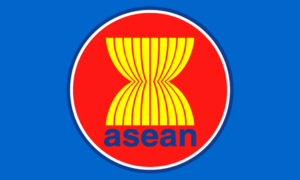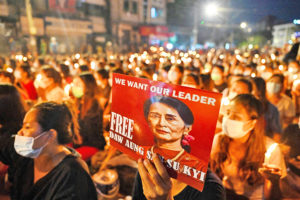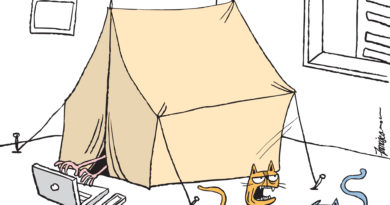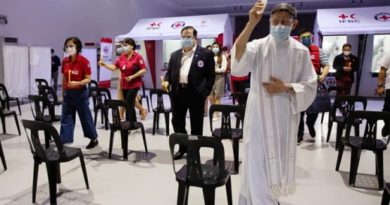OP ED | OPINION |“Balancing Integrity and Responsibility, A Critical Examination of David Hutt’s Journalism on Cambodia”




FREE ASEAN –
FREE MYANMAR/CAMBODIA/THAILAND /LAOS
FREE Aung San Suu Kyi

David Hutt, a well-known journalist recognized for his sharp and analytical writing style, often focuses on political developments in countries like Cambodia, Vietnam, and the wider ASEAN region. He also examines the strategic interests of major powers like China, the U.S., and the European Union in Southeast Asia. As a commentator on platforms like Voice of America and Radio Free Asia, both funded by the U.S. government, his worldview is often aligned with American perspectives, whether Democratic or Republican. One of Hutt’s characteristic methods is to harshly critique governments and politicians by basing his analysis on anecdotal evidence, often jumping to conclusions about a country’s overall situation.
For instance, in his column for Nikkei Asia on August 22, 2024, marking the first anniversary of Samdech Thipadei Hun Manet’s tenure as Cambodia’s Prime Minister, Hutt suggests tensions between Hun Manet and his father, Hun Sen. However, he omits mention of the smooth and peaceful transition of power and the successful renewal of Cambodia’s political leadership. Hutt does not acknowledge Cambodia’s remarkable transformation between 1998 and 2024 or the achievements of the new government over the past year.
In this recent article “Cambodians Conjure Up US Bogeyman Behind Vietnam Canal Concerns” written in Radio Free Asia and posted in Eurasia Review on October 13 2024, Hutt presented his skeptical and critical view of Cambodia’s government narrative surrounding the Funan Techno Canal projects and relations with the U.S. and Vietnam. His article implies that Cambodia’s claims of U.S. interference are unfounded and exaggerated. By labeling the narrative as “desperate” and suggesting that the idea of U.S.-led sabotage is far-fetched, the author paints the Cambodian government as paranoid and prone to conspiracy theories. This undermines Phnom Penh’s position and portrays its leadership as engaging in misleading propaganda.
Ads by:
However, the documents cited by Hutt explicitly state that the U.S. suggested that Vietnam should intervene in and disrupt the Funan Techo Canal project. During the project’s assessment, the U.S. intentionally highlighted the potential threat it posed to Vietnam’s security and interests, encouraging Vietnam to work with the Mekong River Commission (MRC), the World Bank (WB), the Asian Development Bank (ADB), and international environmental organizations and experts. The goal was to amplify concerns about the project’s safety and environmental impact in order to prevent its initiation. He disregards the fact that the U.S. is manipulating the issue behind the scenes, and deliberately confuses cause and effect by emphasizing Vietnam’s concerns are legitimate and not the result of American influence.
The project aligns with Article 5 of the 1995 Mekong Agreement, which mandates that any developments on the Mekong River’s tributaries, such as the Funan Techo Canal, must be reported to the Joint Committee. Cambodia has fulfilled this obligation, demonstrating its commitment to regional cooperation and sustainable development. Therefore, there are legal grounds for Cambodia to proceed with this project.
Additionally, Hutt highlights the government’s failure to secure Chinese funding, casting doubt on its economic management. Hutt wants to paint contrast between reality and propaganda by emphasizing Vietnam’s concerns are legitimate and not the result of American influence. This creates a narrative where Cambodia is portrayed as out of touch with reality, relying on convenient but false external scapegoats for its problems.
Moreover, Hutt subtly suggests that Cambodia may be trying to shift blame onto external actors, which could deteriorate Cambodia relations with U.S. and Vietnam. By implying that Cambodia’s leadership is eager to believe Chinese propaganda about U.S. interference, the article further questions their judgment and independence in foreign policy. Hutt also links the current situation to Cambodia’s past claims of U.S. interference during the 2017 political crackdown. By doing so, the article argues that this is a recurring tactic used by the Cambodian government to suppress dissent and justify controversial actions. This reinforces the notion that Phnom Penh’s behavior is part of a broader, ongoing strategy to deflect responsibility and vilify foreign powers.
The Funan Techo Canal project is key to Cambodia’s economic growth, aiming to boost industrial zones, production lines, and supply chains, particularly in logistics, agriculture, and aquaculture.
.
This will support Cambodia’s goal of becoming an upper-middle-income country by 2030 and a high-income country by 2050. Waterway connectivity is crucial for accessing resources, trade, and transport. Government research shows the project’s economic internal rate of return is between 20% and 31%, highlighting its strong profitability and development potential.
For the past decade, rather than fostering trust or sympathy toward Cambodia and its people, Hutt’s critiques have sparked resentment among those committed to the country’s development and progress. While David Hutt is a respected journalist with significant expertise in Southeast Asian politics, his recent work raises concerns about the impact of his reporting on Cambodia’s relations with other countries. His sharp critiques, often based on anecdotal evidence, appear to overlook important positive developments in Cambodia, such as its peaceful political transition and economic progress. By focusing on negative narratives and suggesting conspiracy theories about U.S. interference, Hutt’s writing risks fostering tensions and misunderstanding, rather than contributing to constructive dialogue and Cambodia relations with other nations.
As a prominent journalist, Hutt bears the responsibility to provide accurate, balanced, and fact-based reporting. Journalism should promote understanding and informed engagement, rather than inflame hostilities or destabilize relationships between nations. If his work leans towards pushing specific agendas or inflating political tensions, Hutt risks being viewed as a “mercenary journalist” compromising journalistic integrity for biased or unethical purposes. Ultimately, his role should be to contribute to the socio-economic development of Cambodia and foster constructive diplomacy, not to undermine it with unbalanced reporting.
The author is a Geopolitical and Security Analyst. The views expressed here are the author’s own
.
Ads by:



 Memento Maxima Digital Marketing
Memento Maxima Digital Marketing











